Have you ever wondered what makes a horse truly happy? These majestic creatures, with their flowing manes and powerful strides, often evoke a sense of wonder and admiration. But beyond their physical beauty, horses have unique behaviors that can tell us a lot about their emotional state. Discovering the signs of a happy horse not only deepens our bond with these animals but also ensures their well-being. Whether you’re a seasoned equestrian or a curious onlooker, understanding these behaviors can transform your interaction with these gentle giants. So, what are the telltale signs of a content and joyful horse? Let’s dive into the world of equine happiness.
Ever wonder if your horse is truly happy? Just like dogs wag their tails, horses have their own special ways of showing joy and contentment. From relaxed ears and a soft gaze to playful energy and a healthy appetite, these signs can reveal a lot about your horse’s emotional well-being. Recognizing these behaviors not only deepens your bond but also helps you respond better to their needs. Let’s explore the top 10 behaviors that signal your horse is living its best life.
Bright Eyes and Ears Forward
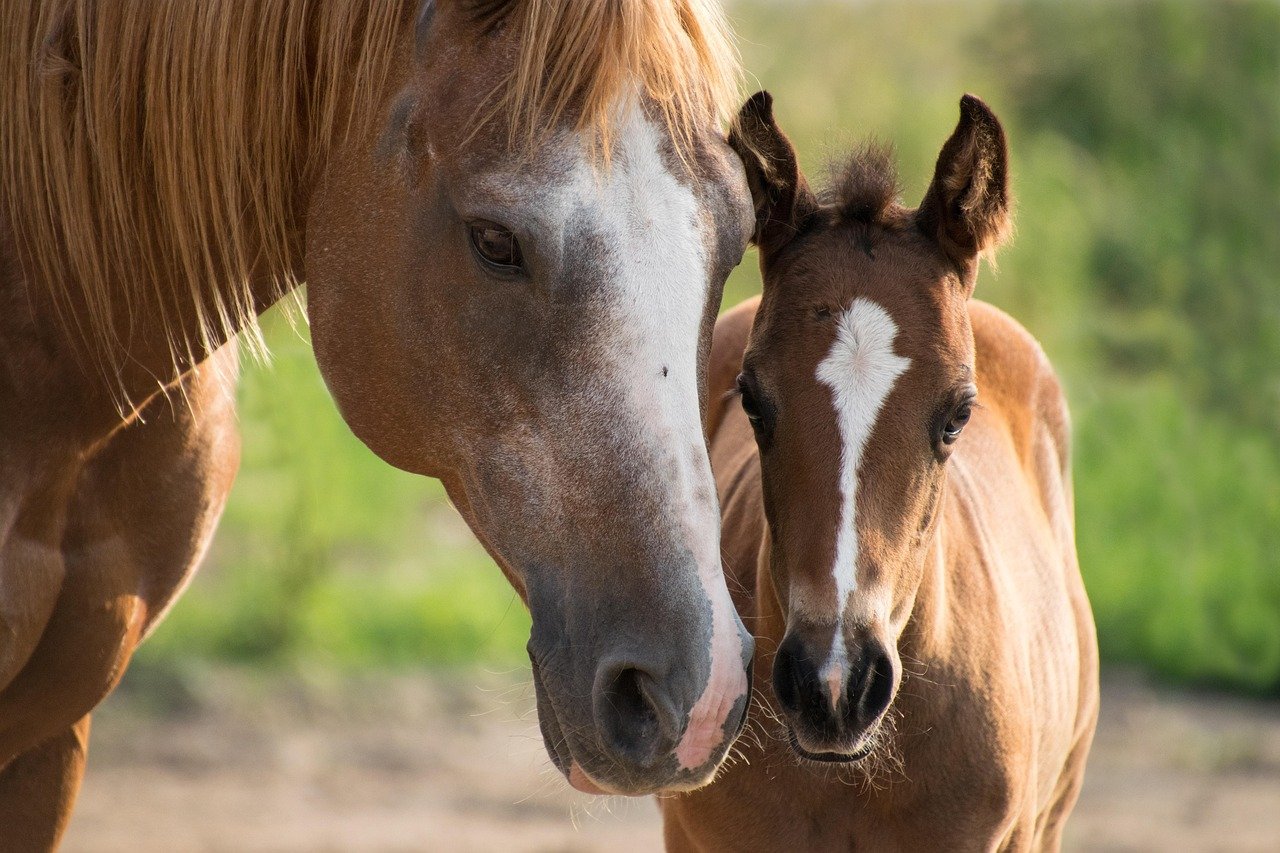
One of the first signs of a happy horse is their bright, alert eyes. Just like humans, horses express a lot through their eyes. When a horse is content, their eyes appear clear and lively, as if they’re taking in the world with curiosity and interest. Alongside this, their ears play a pivotal role in expressing their mood. Ears that are forward and slightly pricked indicate that the horse is attentive and engaged. It’s as if they’re saying, “I’m ready for whatever comes next!” This combination of bright eyes and forward ears is a classic sign of a cheerful horse, eager to interact and explore their surroundings.
Relaxed Body Language
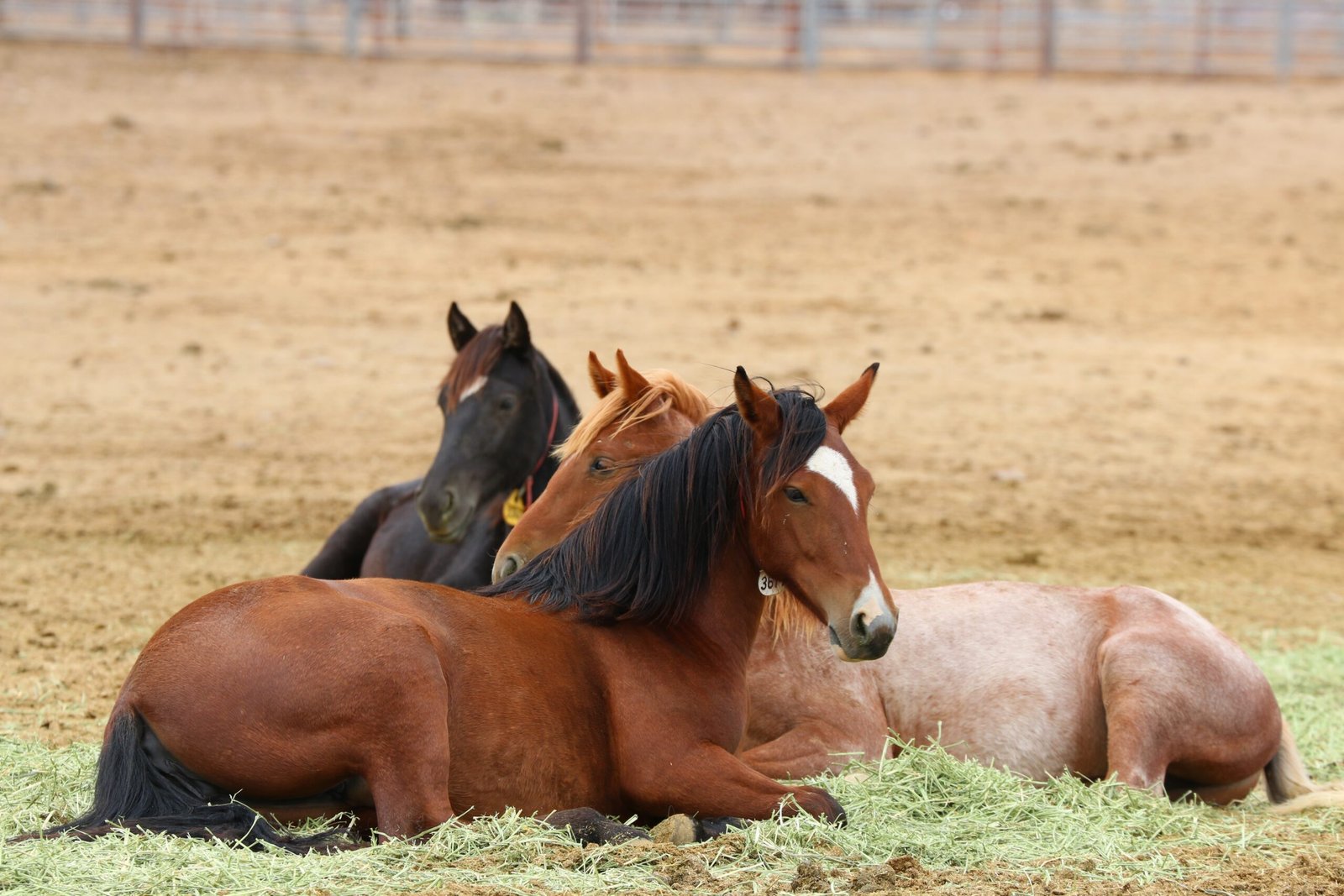
A relaxed body is another key indicator of a horse’s happiness. When a horse feels at ease, their muscles will appear soft, and their posture will be calm and grounded. You might notice them standing with one hind leg cocked, a sign that they’re comfortable and not on high alert. Their neck will be loose rather than tense, and their tail will hang naturally without swishing aggressively. This relaxed demeanor suggests that the horse feels safe and secure in their environment, free from stress or anxiety. It’s akin to a person lounging on a sunny afternoon, completely at peace.
Frequent Grazing
A happy horse is often a grazing horse. Horses are natural foragers, and when they’re content, they will spend a significant amount of time munching on grass or hay. This behavior is not just about satisfying hunger; it’s also a soothing activity that keeps them entertained and relaxed. Imagine a horse leisurely nibbling at the grass, savoring each bite. This simple act of grazing can be a meditative process for them, much like how we might enjoy a quiet meal with friends. So, if you see a horse happily grazing, it’s a good sign they’re feeling positive and content.
Playful Behavior
Playfulness is a delightful indication of a horse’s happiness. When horses are in a joyful mood, they often engage in playful antics, especially when they’re with other horses. You might see them chasing each other, bucking, or even rolling around in the dirt. These playful behaviors are not only fun to watch but also serve as a way for horses to bond and release energy. It’s similar to children playing tag or jumping on a trampoline, filled with laughter and joy. A playful horse is a happy horse, expressing their exuberance and zest for life.
Healthy Appetite
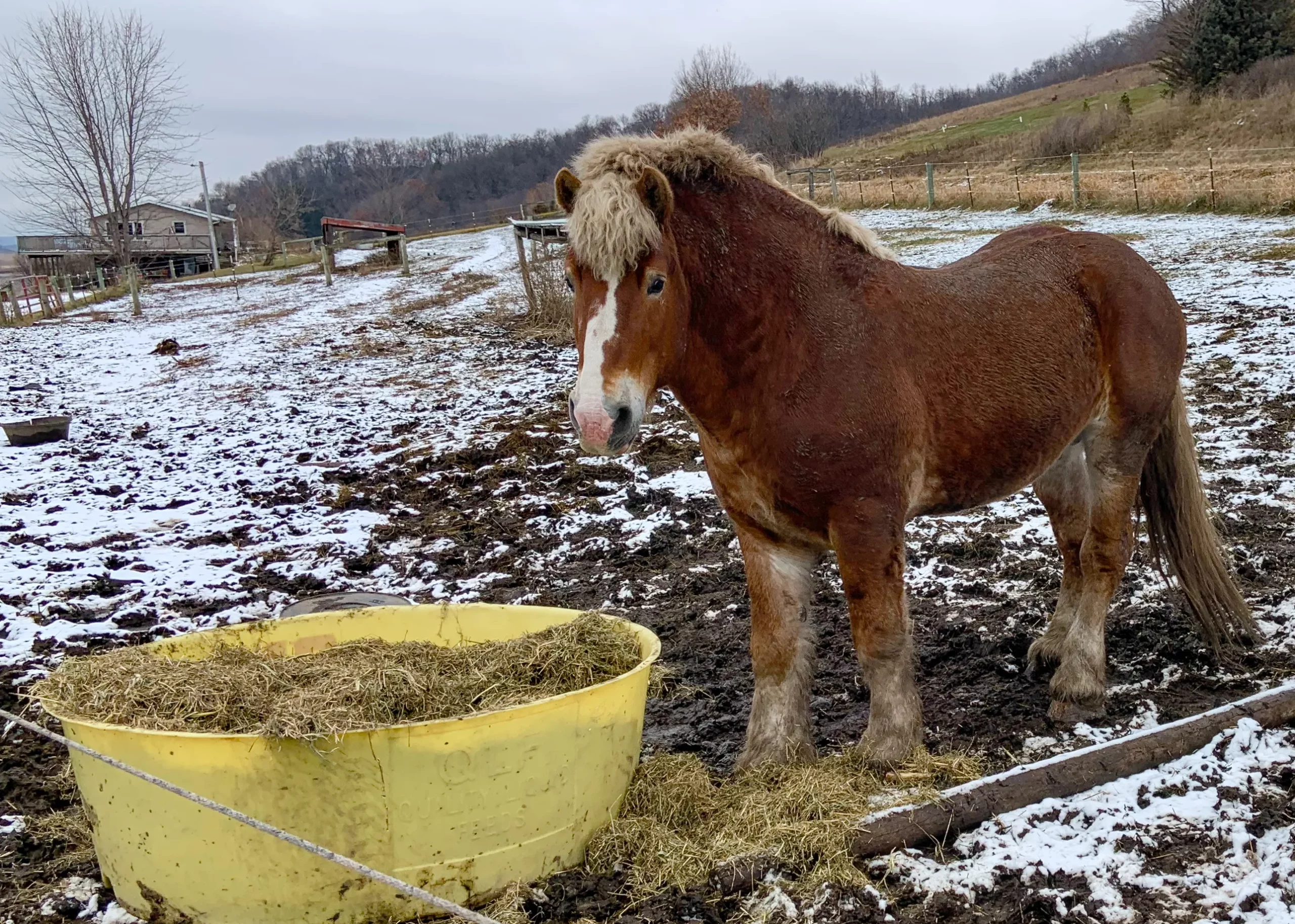
A healthy appetite is a strong sign of a horse’s well-being and happiness. When a horse eagerly approaches their feed and eats with gusto, it’s a positive indication that they’re feeling good. Just like us, when horses are stressed or unwell, their appetite can diminish. So, a horse that is enthusiastic about their meals is likely content and thriving. It’s akin to someone looking forward to a delicious dinner after a long day. When a horse enjoys their food, it’s a clear signal that they’re in a good place both physically and emotionally.
Soft Nicker Greetings
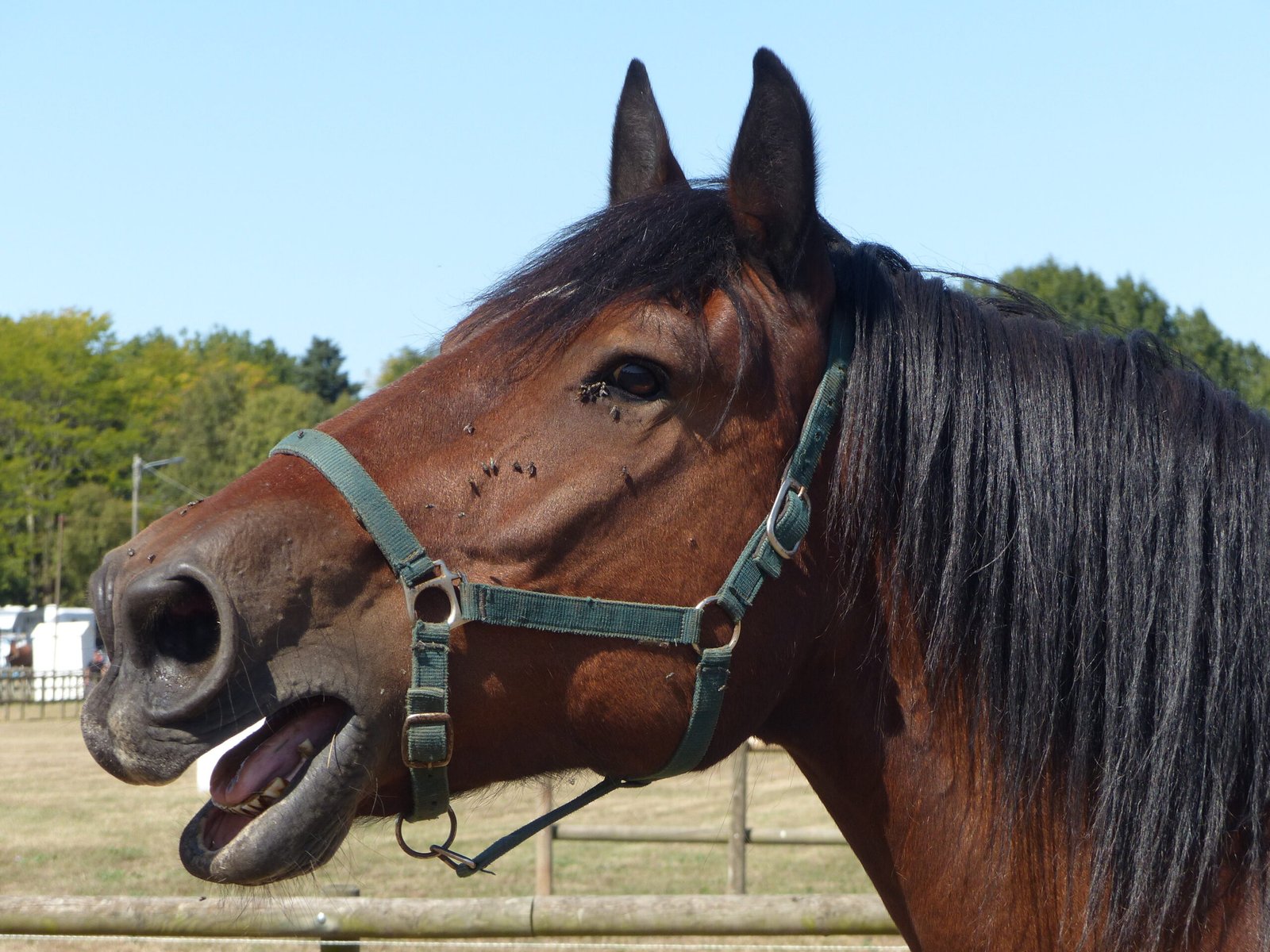
Horses have a unique way of communicating their happiness through vocalizations, and one of the most endearing sounds is the soft nicker. This gentle, low-pitched sound is often used as a greeting, especially when a horse sees a familiar person or another horse they like. It’s their way of saying, “Hello, I’m happy to see you!” This welcoming nicker is a sign of affection and trust, indicating that the horse feels comfortable and pleased in their environment. It’s like a warm hug or a friendly wave, a small gesture that speaks volumes about their mood.
Curiosity and Exploration
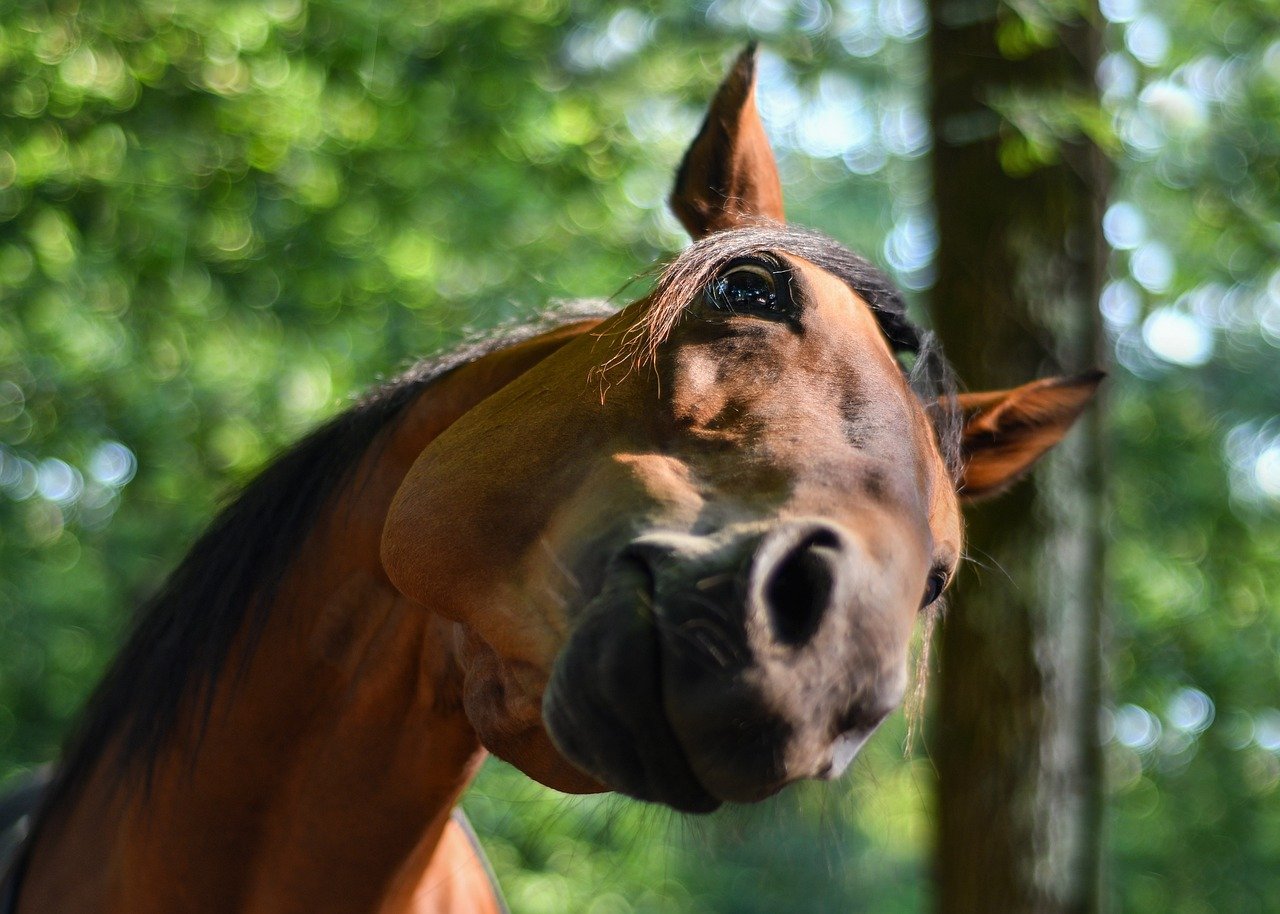
A curious horse is often a happy horse. When horses are content, they tend to explore their surroundings with interest and enthusiasm. They might sniff new objects, investigate different areas, or gently nudge things with their nose. This curiosity is a sign of a healthy and engaged mind, eager to learn and experience new things. It’s similar to a child exploring a playground, filled with wonder and excitement. A horse that shows curiosity is one that feels confident and secure, ready to embrace the world around them.
Bonding with Companions
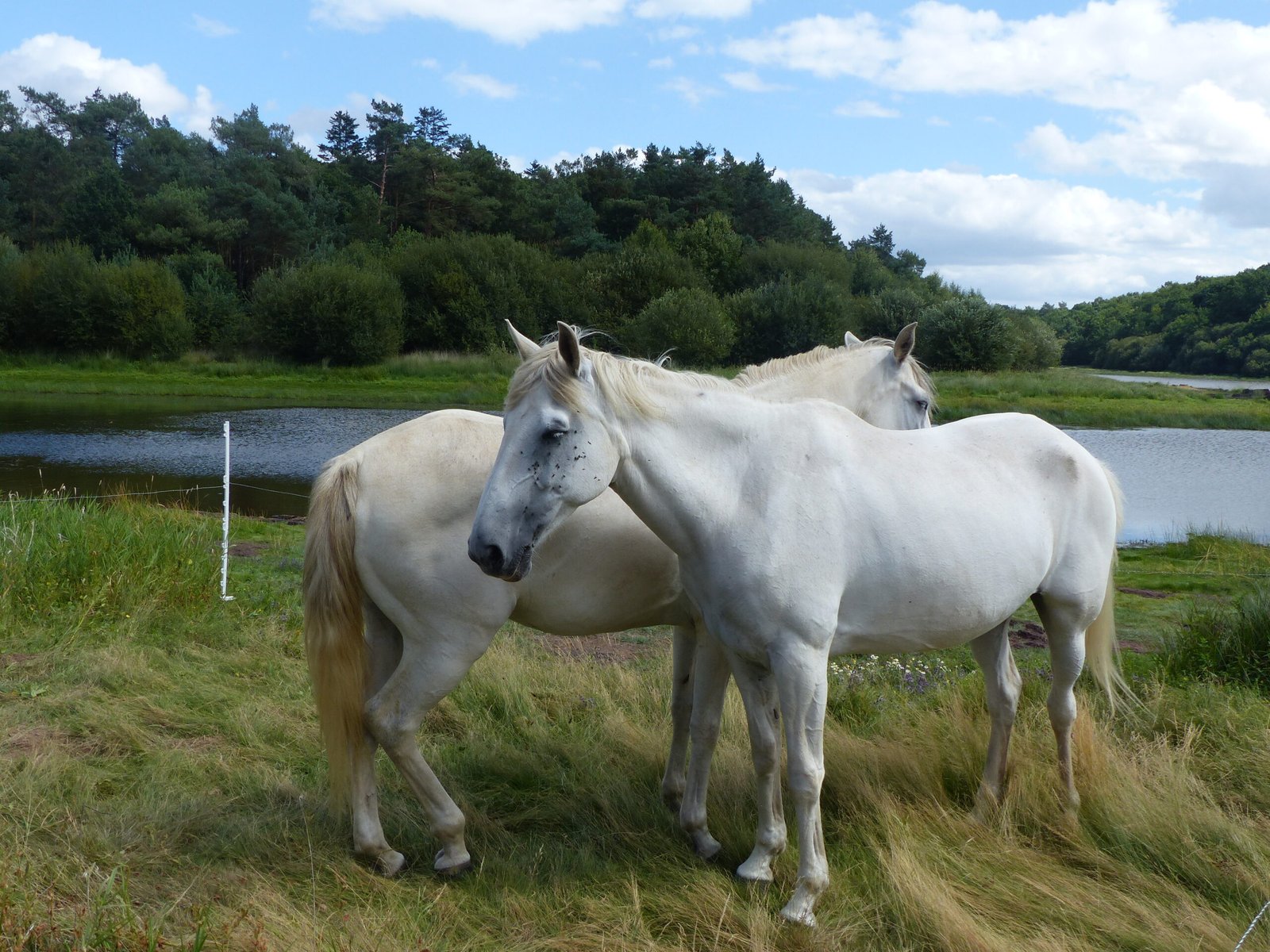
Horses are social animals, and their interactions with companions can reveal a lot about their happiness. When horses are content, they often engage in mutual grooming, standing close to each other, or simply enjoying each other’s company. These social behaviors are crucial for their emotional well-being, akin to how humans cherish time with friends and loved ones. A horse that seeks out companionship and enjoys the presence of others is likely feeling happy and fulfilled. These bonds are essential for their mental health, providing comfort and a sense of belonging.
Calm and Steady Gait
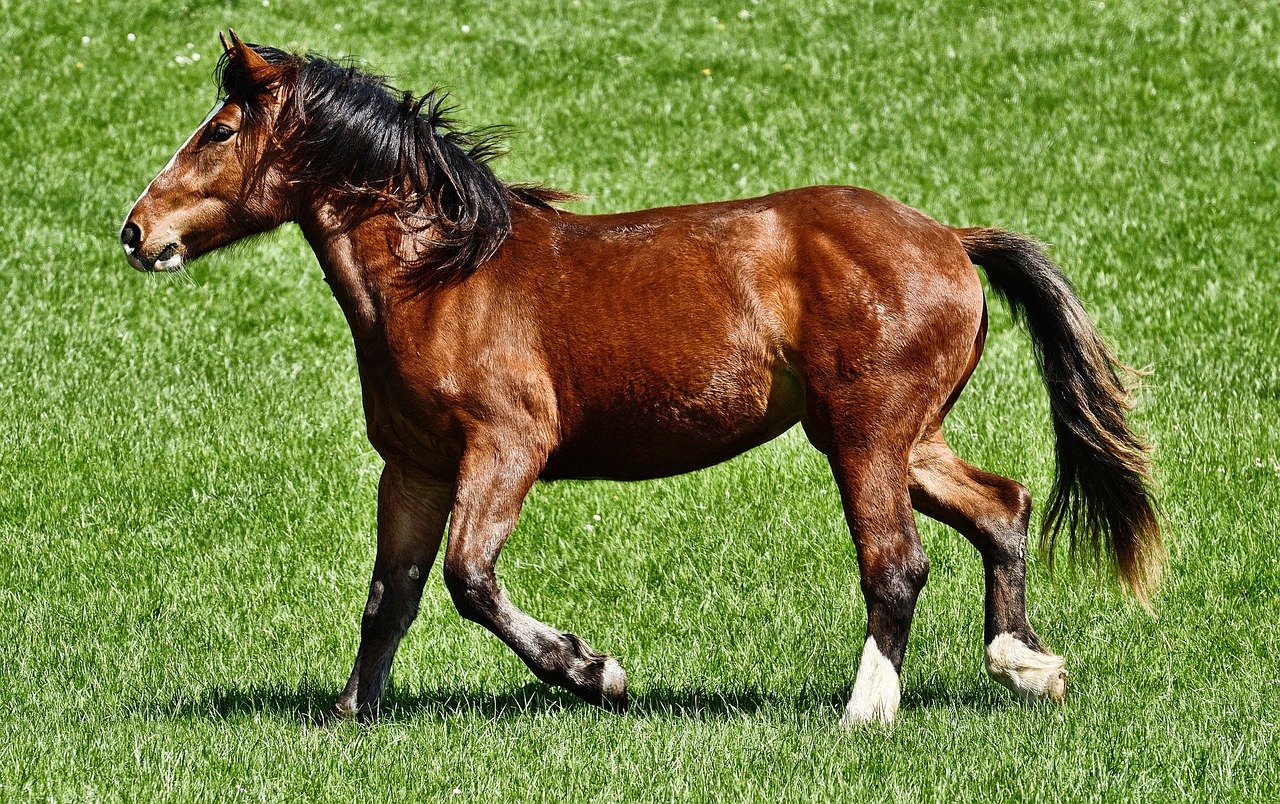
The way a horse moves can also be a reflection of their happiness. A calm and steady gait, whether walking, trotting, or cantering, indicates a relaxed and content horse. When a horse moves smoothly without any signs of tension or discomfort, it’s a sign that they’re feeling good both physically and emotionally. This graceful movement is a testament to their well-being, much like how a person might stroll along a beach, enjoying the rhythm of the waves. A horse’s gait can tell a story of their inner peace and contentment.
Restful Sleep Patterns
Finally, a happy horse will have healthy and restful sleep patterns. Horses need a combination of standing rest and lying down sleep to feel rejuvenated. When a horse feels safe and content, they’re more likely to lie down and enjoy deep sleep. This restful state is crucial for their overall health and vitality, much like how humans need a good night’s sleep to function well. Observing a horse that sleeps peacefully is a reassuring sign that they’re in a positive state of mind, ready to face the day with energy and enthusiasm.
In conclusion, understanding the behaviors of a happy horse allows us to ensure their well-being and deepen our connection with these magnificent creatures. By recognizing these signs, we can create an environment where horses thrive, bringing joy to both them and those who care for them. What other behaviors have you noticed in a happy horse?






